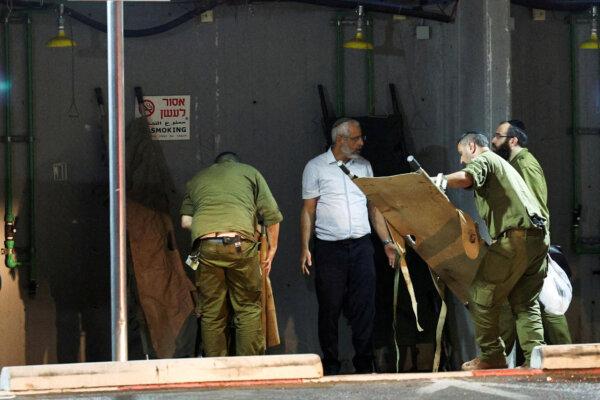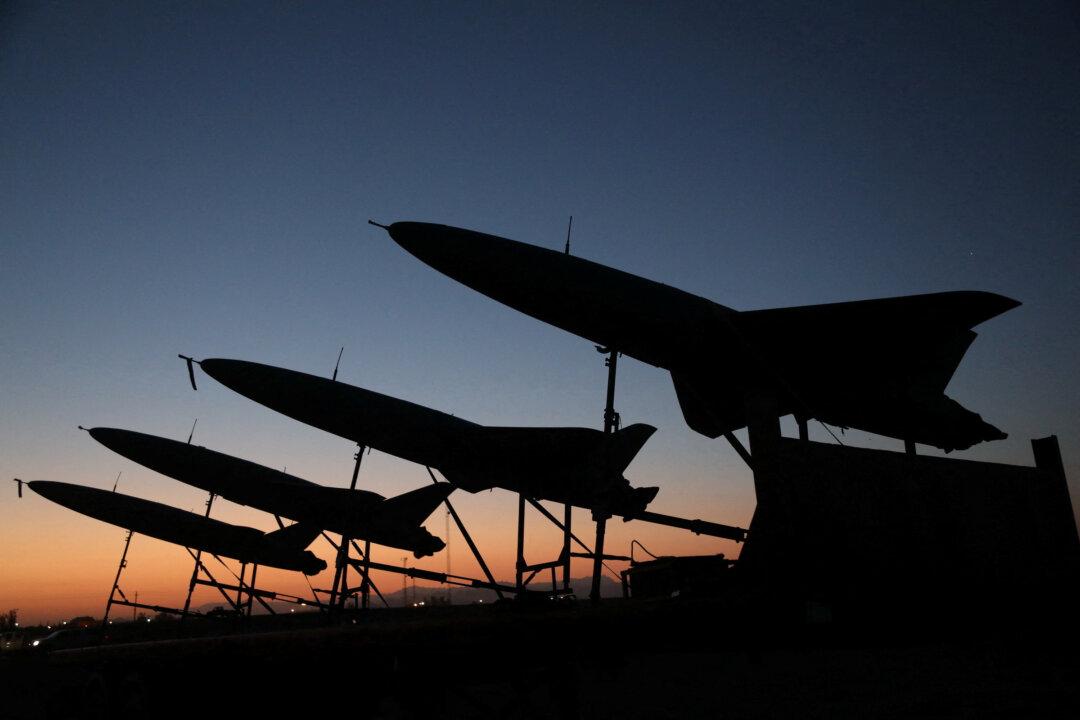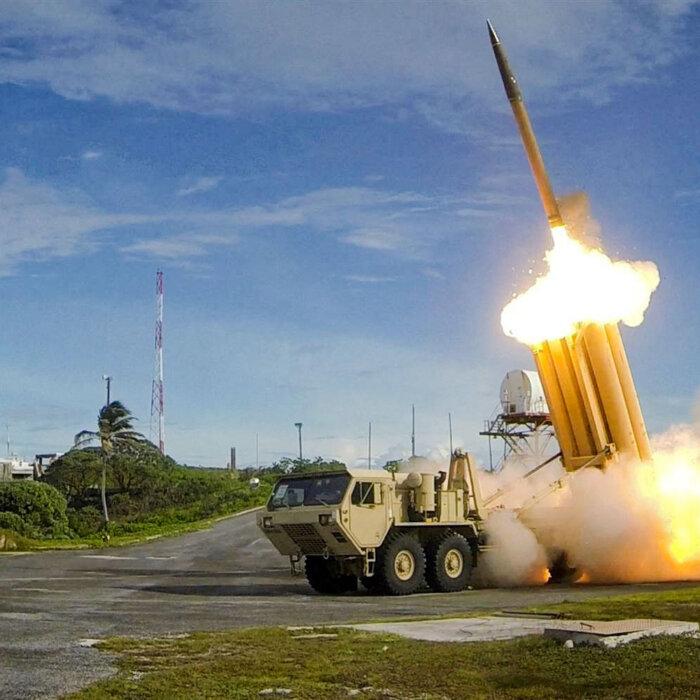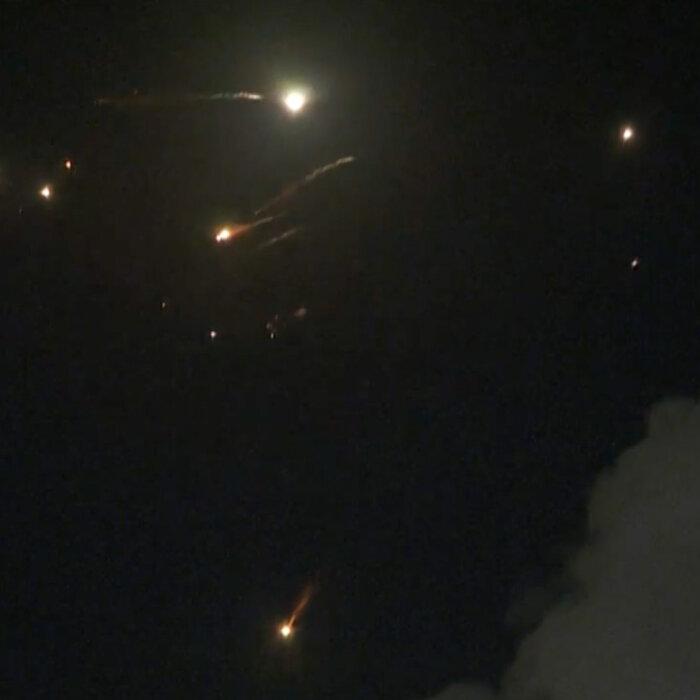Four Israeli soldiers have been killed after Hezbollah launched what it called a “swarm of drones” at an army base near Binyamina in central Israel.
The Oct. 13 attack against a training base of the elite Golani Brigade also left seven soldiers severely wounded.
It is the deadliest strike by the Hezbollah terrorist organization, which is part of Iran’s Axis of Resistance, since Israel sent troops across the border into southern Lebanon on Oct. 1.
“The IDF shares in the grief of the bereaved families and will continue to accompany them,” the IDF stated. It asked people to “refrain from spreading rumours and the names of injured individuals.”
Israel’s national rescue service said 61 people were wounded in the attack, which reportedly occurred when soldiers were eating in the base canteen.
Hezbollah said in a statement that the attack was in retaliation for Israeli airstrikes on Beirut that killed 22 people.
‘Unique and Complex Operation’
Hezbollah, in a statement released through its al-Manar website, said the attack was a “unique and complex operation” that launched dozens of missiles toward various targets in the Israeli towns of Akko and Nahariya “with the aim of distracting the Israeli air defense systems.”At the same time, according to Hezbollah, a series of new drones penetrated the Israeli air defense radars without being detected and reached their target.
Hezbollah described the weapons it used as Hudhud drones, which are believed to be similar to the Samad drones used by the Houthis and based on an Iranian design.
“We will remain present and ready to defend our resilient and oppressed nation and will not hesitate to fulfill its duty in deterring the enemy,” Hezbollah stated.
Pentagon spokesman Maj. Gen. Patrick Ryder said President Joe Biden had directed Defense Secretary Lloyd Austin to authorize deployment of the Terminal High Altitude Area Defense system to Israel.
Israeli troops are fighting with Hezbollah forces on the ground in southern Lebanon, and on Oct. 13, the IDF was accused of crashing tanks through the gates of one of the U.N. peacekeeping bases, at Ramyah.
IDF ‘Putting Peacekeepers in Danger’
In its statement, UNIFIL said, “The tanks left about 45 minutes later after UNIFIL protested through our liaison mechanism, saying that IDF presence was putting peacekeepers in danger.”UNIFIL also accused the Israelis of firing smoke rounds near peacekeepers, causing skin irritation, and called the incident a “further flagrant violation of international law.”
“For the fourth time in as many days, we remind the IDF and all actors of their obligations to ensure the safety and security of U.N. personnel and property and to respect the inviolability of U.N. premises at all times,” UNIFIL stated.
IDF spokesman Lt. Col. Nadav Shoshani said Hezbollah had fired anti-tank missiles at Israeli forces, wounding 25 soldiers, near the UNIFIL base.
He said a Merkava tank was helping to evacuate the casualties under fire when it accidentally reversed into the gate of the base.
“It is not storming a base. It is not trying to enter a base. It was a tank under heavy fire, mass casualty event, backing up to get out of harm’s way,” Shoshani said.
But he said any instance of U.N. forces being harmed would be investigated at “the highest level.”
UNIFIL ‘Providing Human Shield’
On Oct. 13, Netanyahu said UNIFIL was “providing a human shield” to Hezbollah.“We regret the injury to the UNIFIL soldiers, and we are doing everything in our power to prevent this injury. But the simple and obvious way to ensure this is simply to get them out of the danger zone,” he said in a video statement.

Hezbollah began firing rockets into Israel on the day after Hamas launched its deadly attack on Israel on Oct. 7, 2023.
After months of rocket attacks by Hezbollah, Israel escalated the conflict in September with a series of air strikes that killed Hezbollah’s leader, Hassan Nasrallah, and several of his senior commanders.
Hezbollah rocket attacks on Israel have killed at least 58 people, half of them soldiers, since October 2023.







